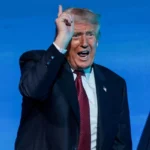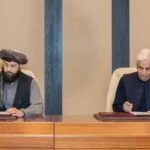A dynamic middle class, rapid urbanization, and the revolutionary impact of social media and technology are all driving significant changes in Pakistan’s political environment ahead of the next elections.
It is projected that these interrelated elements would work as catalysts, changing the fundamental nature of political activity in the country and influencing the voter base’s thinking.
The approaching elections represent a critical turning point in Pakistan’s democratic journey, as the middle class grows, urban centers change, and technology transforms communication.
This dynamic middle class, defined as individuals earning between $2 and $10 per day, has increased dramatically, reaching 42%, according to Dr. Ammar A. Malik, senior research scientist at AidData, a research lab at William & Mary, a public university in Virginia, United States.
Pakistan’s middle class may have been more substantial, even with its growth rate between 3% and 5%, if the country’s GDP had grown at a rate similar to that of China or India.
Dr. Malik highlights that the middle class, which is currently the 13th largest in the world, is no longer solely dependent on traditional clan affiliations and has a significant impact on voting behavior and decision-making.
Quick Urbanization
Dr. Malik notes that a shift toward greater autonomous decision-making occurs when people and families relocate to cities.
The traditional patron-client system, in which politicians win votes by appealing to clan loyalties, is being challenged by urbanization.
Tayyab Shamsher emphasizes the role of urban culture on voting behavior, highlighting a declining influence of group affiliations in favor of individual choices. Shamsher’s family member has been running for office from Sargodha for the PML-N for decades.
He claimed that as the population has become more urbanized and empowered, they are starting to focus more on national issues rather than just local ones.
The transforming power of social media
Dr. Malik emphasized how mobile phone technology has transformed information accessibility and is contributing to the creation of an informed voter as social media and technology continue to revolutionize political engagement in Pakistan.
As a result of their growing wealth, more Pakistanis now own computers and mobile phones, which has changed their perception of the political system.
He does, however, issue a warning over the polarization resulting from uncontrolled social media content.
With more than two-thirds of the population under 30, social media has empowered the youth despite the dangers of disinformation. This has influenced their political ideas and created a more dynamic election scene.
The changing political landscape
Shamsher, on the other hand, draws attention to how politicians’ tactics have changed in reaction to shifting circumstances.
More individualized campaigns are replacing traditional strategies that centered on connections to powerful people—like village patriarchs—as Shamsher pointed out.
“Politicians are cultivating relationships with individuals instead of depending only on group affiliations, adjusting to the independence that urbanization brings.”
According to Shamsher, as a result, voting patterns are increasingly centered on issues at the national level and performance rather than just family or tribal relationships.
Deficit in trust and institutional difficulties
Dr. Nawaz Ul Huda, a political expert, highlights the ongoing difficulties facing Pakistan’s democratic system.
He observes The lack of faith in institutions persists as a key issue, even in the face of urbanization and an expanding middle class.
According to Dr. Huda, the transition to voting behavior that is more manifesto-driven is hampered by the lack of strong institutions.
He emphasizes the significance of resolving trust gaps and advocates for electoral reforms, proposing legislation that would force reelections in cases where victory margins are close in order to promote a more accountable and representative political system.
Thracian decision-making and political dynasties
Dr. Huda muses on Pakistanis’ propensity to make snap judgments based on temporary fixes rather than taking the long-term effects into account.
He contends that the persistence of dynastic politics is due to the lack of a strong local government structure, which makes it difficult for new leaders to emerge.
While historical events cast a shadow over the next elections, Dr. Huda cautions that fundamental reforms are necessary to eradicate unelected authorities and dynastic politics, including
In conclusion, Pakistan’s political landscape is changing as a result of the interaction of a dynamic middle class, fast urbanization, and the impact of social media.
Overcoming trust problems, enacting election changes, and cultivating an educated and accountable political culture present challenges.
The forthcoming elections will be a critical turning point in deciding Pakistan’s political course as it negotiates these factors.
The necessity of politics based on manifestos
Dr. Huda addresses the problem of manifesto-driven politics and emphasizes the significance of political parties holding themselves accountable.
Voters may continue to doubt the efficacy of the democratic process if there isn’t a strong commitment to fulfilling commitments. The need for accountability and openness intensifies as the middle class expands and demands a more substantial foundation.
Using technology to increase adolescent involvement and
Dr. Malik emphasizes how technology can change lives, particularly for young people in Pakistan. Because so many people in the world are under 30, social media and mobile technology have become indispensable in influencing people’s political views.
Malik proposes that in order to adjust to this new reality, authorities should take into account the youth’s active participation and use technology to promote more inclusive governance.
Capitalizing on this demographic transition has the potential to create a political environment that is more dynamic and participative.
Local government for the advancement of the nation
Dr. Malik supports moving toward local governance as a response to the evolving dynamics.
He contends that giving local governments more authority would enable them to provide services more effectively.
Overcoming obstacles to achieve long-term transformation
Pakistan’s impending elections present an important opportunity to address enduring issues and welcome long-term political transformation.
Dr. Huda emphasizes the need to do away with unelected officials and dynasty politics in order to create a more representative government that better represents the true makeup of society.
Manifestos, young engagement via technology, and local government investments are critical stages in creating a political environment that responds to the changing needs and ambitions of Pakistani citizens.
The confluence of urbanization, technological progress, and a dynamic middle class poses potential and difficulties for creating a more dynamic and responsive political future while Pakistan grapples with thesecomplexities.
There’s a chance that the elections may spark revolutionary upheaval.If the country corrects institutional flaws and adopts an inclusive, forward-thinking agenda, the elections have the potential to be a catalyst for profound change.







